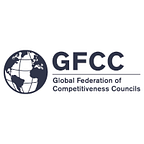Omnipreneurship
Amr Al-Dabbagh, GFCC Distinguished Fellow
Everyone understands, or thinks they understand, what an “entrepreneur” is. Derived from a French word meaning “to undertake,” an entrepreneur is, as Peter Drucker noted,someone who “always searches for change, responds to it, and exploits it as an opportunity.” The term “entrepreneurship” is narrowly defined as pertaining to starting a business, creating value and taking it public. I think it’s high time to release both terms from their shackles.
While anyone from the kid who runs a cleverly-placed lemonade stand to the fellow who opens up a hole-in-the-wall restaurant can be considered an entrepreneur, the most admired entrepreneurs are the out of-the-box thinkers — people like Steve Jobs, Mark Zuckerberg, Richard Branson or the founders of Cirque de Soleil; they are disruptive innovators who invert existing paradigms, delight whole new worlds of customers, and even open up new industries. Great entrepreneurs scan the horizon for the new doors that open in business, society, politics, technology, and so on. Once they find that door, they add value in some way — by making an experience easier, by serving previously-unserved customers, and so on. And they have a set of admirable characteristics — pluck, competitiveness, a willingness to take risks, imagination, hunger, creativity and, most importantly, vision.
To me, the word “entrepreneur,” as wonderful and valid as it is, is much too small to meet the needs and challenges of the world today. By keeping our understanding of entrepreneurship limited to the world of business, we overlook the opportunity to improve the world, and even ourselves. What if we applied wonderful characteristics of entrepreneurs to just about everything we do? What if we used “omnipreneursip” — an organized approach to adding meaning and purpose — to all aspects of life?
For example, think of the last place most people expect to see entrepreneurial principles at work — a federal government. Government is the antithesis of entrepreneurship. It’s hidebound, unimaginative, and bureaucratic. But if you open it up, bring in entrepreneurial principles, and run it in the same way that you might run the most disruptive Silicon Valley company, you can move mountains.
Consider what we accomplished in the Kingdom of Saudi Arabia (KSA), where I served as the Governor of the Saudi Arabian Investment Authority (SAGIA) from 2004 to December 2011. At the time I came into office, KSA was not seen as a particularly attractive place to do business, at least compared to places like Singapore or the United States. At SAGIA, we saw an opportunity to add value for companies that might want set up business in the Middle East.
To do that, we did the first thing that any good entrepreneur would do: we pursued what Jim Collins and Jerry Porras described in Built to Last as “Big, Hairy, Audacious Goals (BHAGs)”. We launched a plan we dubbed the “10x10” initiative, a program of economic reforms with the goal of making Saudi Arabia one of the top-ten most competitive investment destination by 2010 (we just missed that goal, coming in at # 11). We established the National Competitiveness Center, an independent body to monitor, assess and support the enhancement of our country’s competitiveness. It’s a think tank that does more than think: it serves as a facilitator and communicator of change. And we established the Global Competitiveness Forum, an annual event that features hundreds of global CEOs and heads of state and other leaders. (Past speakers have included Bill Gates, Michael Dell, Bill Clinton and Lee Kuan Yew.)
But we did many smaller things, too, all in an entrepreneurial way, from the manner in which we hired, developed and managed talent, to figuring out new ways to delight stakeholders, to inventing ways to attract investors without having to pay them to do so. In fact, we established the kinds of business principles and practices you might see only in the most forward-looking Silicon Valley companies.
We were pretty successful at SAGIA, and I’ve lately been thinking about how great would it be if we tried to uncover the potential of people and the positive values that we want to see in the world — not just with respect to our work, but to our civic lives, our communities, the charities we support, even our families and ourselves.
What if, instead of just having entrepreneurs who concerned themselves with business, we had a world full of “governpreneurs” who applied their entrepreneurial skills to public policy; “philanthropreneurs” who did the came with charitable organizations; “familypreneurs” who looked for new ways tosupport their extended families; and even “individualpreneurs” who applied a set of high entrepreneurial principles to the ways they conduct themselves in their own lives and careers? And what if a person could master “preneurship” in all kinds of areas?
These are the people practicing “omnipreneurship” — an approach that includes three principles of Giving, Earning & Sustaining; five values and ten golden rules to produce scale, impact and sustainable solutions for the greater good of the world.
In a career that has spanned more than thirty years, and crossed the private, public and social sectors, I’ve found that omnipreneurship is an approach which fosters a thriving entrepreneurial spirit that demands excellence, efficiency and drives productivity with individuals, organizations and nations, making them more competitive.
Amr Al-Dabbagh is the Chairman and CEO of the Al-Dabbagh Group, a family conglomerate headquartered in Jeddah, Saudi Arabia. He is also the founding Chairman of the Stars foundation, the global philanthropic arm of the Group, and a father of five. His new book “Omnipreneurship” can be found on Amazon.
